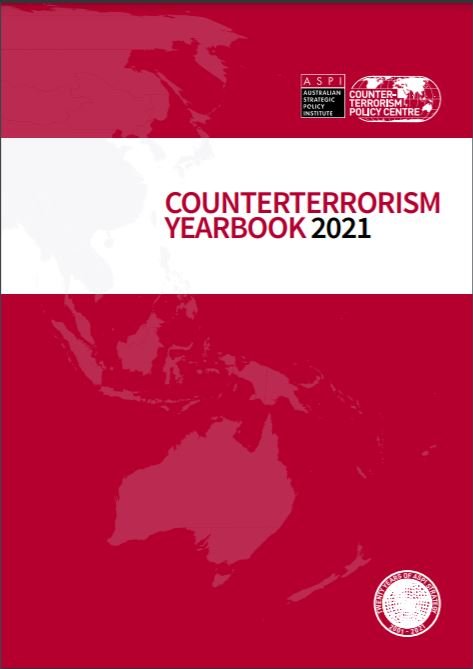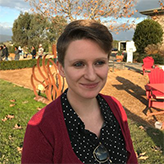AVERT Newsletter
April 2021
Issue #1
Convenor’s Message
We are delighted to bring you the first edition of what will be a regular feature of our AVERT Research Network communications with our membership and broader community of interested readers.
While 2020 was a year to both remember and forget for many of us during the onset and progression of the global COVID-19 pandemic, AVERT continued to organise, advocate and expand our activities in connecting researchers with communities, policymakers, practitioners and each other as we pivoted to new ways of working and engaging.
Highlights from 2020 (and extending into early 2021) included a truly wonderful International Speakers Webinar series, featuring some of the most innovative and exciting researchers in terrorism and violent extremism studies today from around the world, along with several terrific presentations by Australian colleagues. You can read more about that series below and, if you missed any of these sessions, you can access them online here.
Another highlight was the finalising of a three-year agreement for AVERT to provide research capacity-building activities and services to Australian government agencies, also covered below. This agreement reflects the strong standing of AVERT for independent, evidence-based expertise and engagement in research on violent extremism and terrorism that has marked the preceding three years of our development.
And, while many of us in Australia were relaxing and regenerating over the summer break in January, several AVERT members contributed to AVERT's submission to the Parliamentary Joint Committee on Intelligence and Security's Inquiry into Extremist Movements and Radicalism in Australia, ably coordinated by Lydia Khalil, who was also a key contributor to the submission. Our submission in February has resulted in AVERT's invitation to appear at the Academic Roundtable that forms part of the Parliamentary public hearings held by this Inquiry later in April.
Amidst these activities, we also renewed the terms of our serving AVERT Steering Committee members for another two years, farewelled two outstanding AVERT Executive members (Zahid Ahmed and Anna Halafoff, both Deakin University), welcomed the transition of Adrian Cherney (University of Queensland) from the Steering Committee to the Executive, and also welcomed Mario Peucker (Victoria University) as a new member of the Steering Committee and Joshua Roose and Imogen Richards (both Deakin University) to the Executive.
We also farewelled the wonderful Vivian Gerrand, inaugural AVERT Coordinator, who did such an amazing job of making AVERT a reality from its commencement in 2018. Vivian has taken on a research fellowship in the Centre for Resilient and Inclusive Societies at Deakin University but remains a very active and valued member of AVERT, and we are incredibly grateful for all the energy, intelligence and commitment that Vivian brought to the role over the last 3 years.
In her place, we are both delighted and privileged to have the talented and dynamic Lydia Khalil take on the role of AVERT Coordinator.
Throughout, we remained active on Twitter (@AvertResNet) which has proved a great way of celebrating and promoting the many new publications, media appearances and grant successes of AVERT members right across the network, as well as sharing research, news and opportunities from others working in the same space in different parts of the world. The more you tell us, the more we can promote your terrific work! Keep us up to date on your achievements either via tagging us on Twitter or emailing us on adi-avert@deakin.edu.au
With what we hope is the worst of the pandemic in Australia starting to recede on the horizon, we have an exciting and we hope rewarding year planned in 2021. New initiatives include an international conference on violent extremist risk assessment in June; an international CVE Symposium in November; the continuation of our highly successful webinar series, including a joint TSAS (Canadian Terrorism, Security and Society Research Network)-AVERT two-part webinar series on religion and right-wing extremism; community and media roundtables with AVERT members (deferred from last year due to COVID-19), the upgrading of our website, and the addition of new members from both Australia and overseas.
We are also thrilled that Andrew Zammit will again contribute a cracking series of AVERT Blogs, reflecting the incisive, original and thoughtful analysis on both contemporary and historical issues in terrorism and violent extremism studies for which Andrew is rightly renowned. An introduction to Andrew's first AVERT blog for the year is included below, but if you want to check out some of his earlier work with us, head over to our AVERT Commentary blog.
A significant part of what we bring to you in each edition of future Newsletters will cover the research interests and achievements of AVERT members, so don't forget to share your news with us! We'll be sending regular requests for information so that we can help everyone stay up to date with the exciting work and contributions of AVERT members right across their range of interests and expertise.
In the meantime, we really hope you enjoy this first edition of the Newsletter.
With best wishes,
Professor Michele Grossman
AVERT Convenor
AVERT Funding Agreement
Last year AVERT signed an activities agreement with the Department of Home Affairs to provide advisory expertise and build research capacity for the Research and Evaluation Working Group (REWG) of the Countering Violent Extremism Sub-Committee (CVESC) of the Australia-New Zealand Counter-Terrorism Committee (ANZCTC), which is responsible for advising on research priorities and activities supported by CVESC funding each year.
The agreement, in the form of an MOU, is expected to cover three years and will be annually funded. AVERT's ongoing operating costs continue to be generously supported by Deakin University. The agreement includes the following deliverables:
a. International CVE Symposium
b. Administering a funding call for two Rapid Evidence Assessments (REAs) on research priorities identified by the REWG
c. Appointment of an AVERT-REWG Liaison Officer
We are fortunate to have the following AVERT network members as part of the CVE Symposium organising committee: Michele Grossman, Deb Smith, Lise Waldek and Lydia Khalil.
Webinars
Over the past few months, we have been privileged to host a number of informative and thought-provoking webinars from established scholars and innovative researchers in the field of terrorism and extremism studies. We look forward to continuing our monthly webinar program to bring the ideas and expertise of national and international researchers into 2021.
Webinar Highlights from 2020 and 2021
Talking Stagnation
Dr John Morrison
14 October 2020
In 2014, Marc Sageman proposed that terrorism research had stagnated. The claim of stagnation has resulted in a period of collective review within terrorism studies. To date, the fruits of this review have revealed a more cautiously optimistic view of the field than that proposed by Sageman. This talk reflected on this review by analyzing the interviews of forty-three guests from the first season of the Talking Terror podcast. [Watch now]
Creating conditions for radicalisation to white far-right violent extremism: medievalist videogames and gaming
Dr Helen Young
29 October 2020
Dr Young argued that games, gaming platforms, and gaming culture must be considered as a complex ecosystem in order to understand how and why they enable radicalisation to white far-right extremism. The webinar explored how ludic, narrative, and cultural and social elements of mainstream Western videogaming create conditions that can facilitate radicalisation to far-right violent extremism. [Watch now]
Islamic State’s global insurgency: Lessons from The ISIS Reader & its counterstrategy implications
Dr Haroro J. Ingram, George Washington University
and Dr Craig Whiteside U.S. Naval War College
12 November 2020
Drawing their experiences supporting efforts to confront the group across the Middle East and Asia, Dr Ingram and Dr Whiteside presented a broad strategic framework designed to contain the movement and suffocate it from opportunities that may arise from great power competition rivalries. [Watch now]
Determining the Role of the Internet in Right-wing Extremism and Terrorism: Six Nine Suggestions for Progressing Research
Professor Maura Conway, Dublin City University
9 December 2020
Professor Conway re-worked her 'Six Suggestions' with a focus on the role of the Net in right-wing extremism and terrorism. In addition to her calls for widening, comparing, deepening, up-scaling, outreaching, and gendering, she also discussed three new suggestions regarding visuals, platforms, and ethics. [Watch now]
Upcoming Webinar
We look forward to our upcoming webinar with Dr Winnifred Louis from the School of Psychology, University of Queensland.
When deradicalisation goes wrong? Applying the social psychology of persuasion in conflict to understand backlash effects in PVE/CVE
Professor Winnifred Louis
22 April 2021
This talk takes up the social psychology of (in)effective persuasion in conflict as a framework to understand trajectories of radicalisation and deradicalisation.
Terrorism and Tornadogenesis: A Multi-Level, Multi-Role, Multi-Mechanism Socio-Psychological Model of Terrorism and its Participants
Professor John Horgan, Georgia State University
19 November 2020
Professor Horgan offered suggestions for where we might find more satisfactory (and useful) answers to several lingering questions around issues to do with who becomes a terrorist and why. [Watch now]
Counterterrorism & Predictive Technologies
Dr Shiri Krebs, Deakin University
17 March 2021
Dr Krebs discussed the effects of predictive technologies, and the opaque epistemologies they entail, on counter-terrorism decision-making processes. [Watch now]
AVERT Blog
Banning extreme-right terrorist organisations: The issues at stake
Andrew Zammit
The Australian government’s recent decision to proscribe the far-right extremist group Sonnenkrieg Division as a terrorist organisation followed months of public debate about the merits of banning such groups. The debate continues, focusing on whether the government has should ban more extreme-right groups. To help make sense of the debate, this post explains several issues that have not been sufficiently addressed so far.
Member News
A number of AVERT members made excellent contributions to the ASPI 2021 Counterterrorism Yearbook, including Michele Grossman, Lydia Khalil, Alexandra Phelan, Deb Smith and Levi West. Access the chapters here.
GABRIEL
ABADOYO
Adebayo, G. O. (2021), 'Counter-radicalization Policies and Policing in education: Making A Case for Human Security in Europe'. Heliyon 7(2). Access the article
EMILY
CORNER
Paul Gill, Caitlin Clemmow, Florian Hetzel, Bettina Rottweiler, Nadine Salman, Isabelle Van Der Vegt, Zoe Marchment, Sandy Schumann, Sanaz Zolghadriha, Norah Schulten, Helen Taylor & Emily Corner (2021), 'Systematic Review of Mental Health Problems and Violent Extremism', The Journal of Forensic Psychiatry & Psychology, 32:1, 51-78.
Emily Corner, Helen Taylor, Isabelle Van Der Vegt, Nadine Salman, Bettina Rottweiler, Florian Hetzel, Caitlin Clemmow, Norah Schulten & Paul Gill (2021), 'Reviewing the links between violent extremism and personality, personality disorders, and psychopathy, The Journal of Forensic Psychiatry & Psychology.
Emily Corner, Noémie Bouhana, & Paul Gill (2021) Updating and Organizing Our Knowledge of Risk and Protective Factors for Lone-Actor Terrorism, NATO Science for Peace and Security Series-E: Human and Societal Dynamics, 152, 116-136.
Paul Gill, Emily Corner, Frank Farnham, Simon Wilson, Zoe Marchment, Alice Taylor, Richard Taylor, & David James (2021) Predictors of varying levels of risks posed by fixated individuals to British public figures, Journal of Forensic Sciences.
MATTEO
VERGANI
Richards, I., Rae, M., Jones, C., Vergani, M. (2021) Political Philosophy and Australian Far-Right Media, Thesis Eleven
Vergani, M. (2021) Community-centered P/CVE Research in Southeast Asia: Opportunities and Challenges. Washington, D.C.: RESOLVE Network
Access the article
Dunn, K., Sharples, R., Diallo, T., Derbas, A., Vergani, M. McGarty, C., Mansouri, F., Paradies, Y., Elias, A. (2021) 'Understanding Varied Attitudes Towards Muslims', Western Sydney University,
Access the article
MUBASHAR HASSAN
Arild Engelsen Ruud, Mubashar Hassan, (2021) 'Radical Right Islamists in Bangladesh: A Counter-Intuitive Argument', South Asia: Journal of South Asian Studies, 44 (21): 71-88
Access the article
VIVIAN
GERRAND
The Arts: Building resilience through arts-based approaches in interfaith and intercultural projects Thursday 6 May 2021
11am – 12.30pm
Horizon 2020 BRaVE (Building Resilience to Violent Extremism and Polarisation) Project Initiatives
Find out more and register
ADRIAN
CHERNEY
Adrian Cherney, Kathleen De Rooy, Elizabeth Eggins, and Lorraine Mazerolle, (2021), 'Mandatory participation in CVE interventions', Brisbane, Australia: University of Queensland, Department of Home Affairs (research funded by the Commonwealth Department of Home Affairs)
Access the article
Adrian Cherney, Emma Belton, and Daniel Koehler, (2020), 'Program integrity guidelines to inform the design, implementation and evaluation of P/CVE initiatives: Guideline review document & Program integrity toolkit'. Queensland & Melbourne: Countering Violent Extremism Unit, Department of Justice and Community Safety and the University of Queensland.
Access the article
MICHELE
GROSSMAN
Grossman, Michele and Vivian Gerrand (2021) ‘Terrorism confidential: Ethics, primary data and the construction of “necessary fictions”, Terrorism and Political Violence
Access the article
Grossman, Michele and Natalie Davis (2021) ‘A bridge too far? An academic-national security practitioner dialogue on research collaboration across the divide’, Journal of Policing, Intelligence and Counter Terrorism
Grossman, Michele (2021) ‘Resilience to violent extremism and terrorism: A multisystemic analysis’ in Michael Ungar (ed.), Multisystemic Resilience: Adaptation and Transformation in Contexts of Change, Oxford: Oxford University Press, 293-317
Access the article
IMOGEN
RICHARDS
Richards, Imogen, Rae, Maria, Vergani, Matteo & Jones, Callum 2021, ‘Political philosophy and Australian far-right media: A critical discourse analysis of The Unshackled and XYZ’, Thesis Eleven.
Opportunities
CREST 2021 Commissioning Call
The call for commissioned projects is now open! Applications close on the 5 May, 2021.
Find out more and apply here.
New Members
We are delighted to welcome our latest new members. You can find all our members here.
GABRIEL O ADEBAYO
University of Helsinki
JOANA COOK
Leiden University
STEPHAN SHEPHARD
Swinburne University of Technology
EMMA THOMAS
Flinders University






















